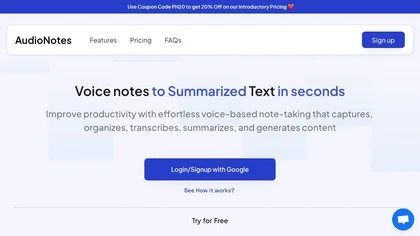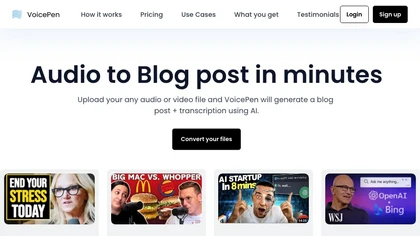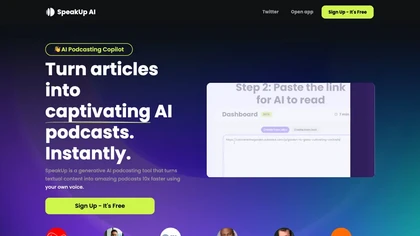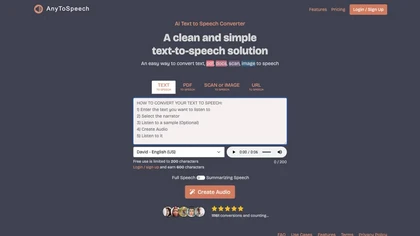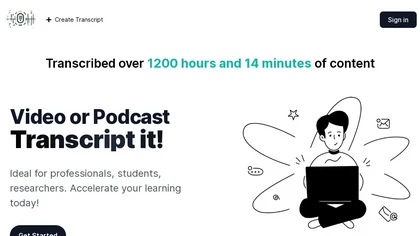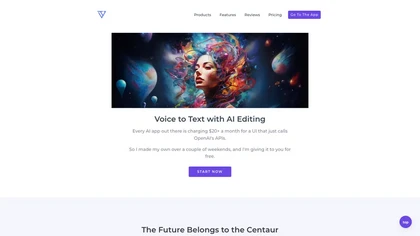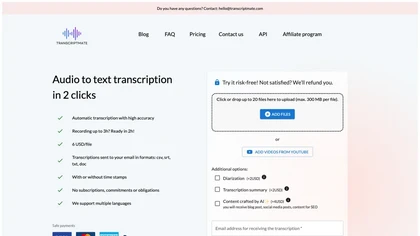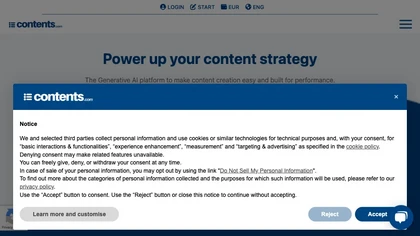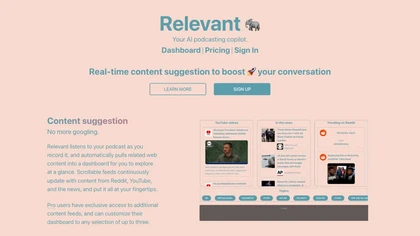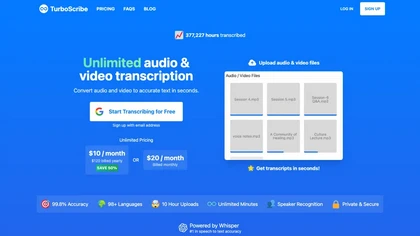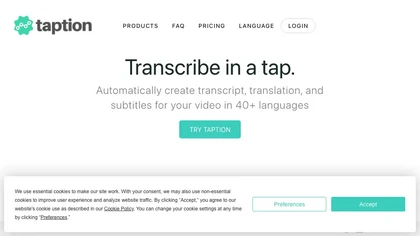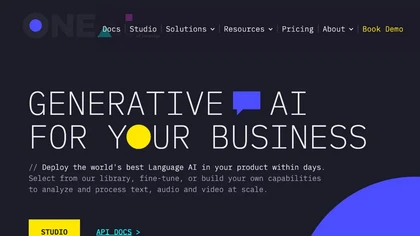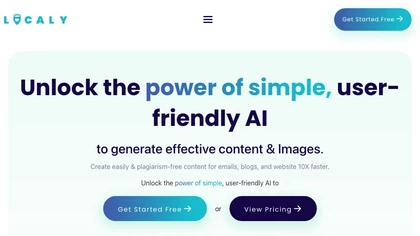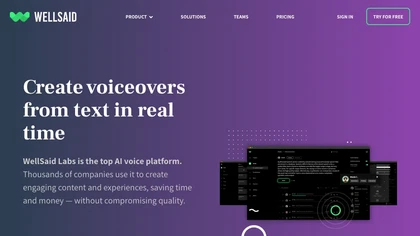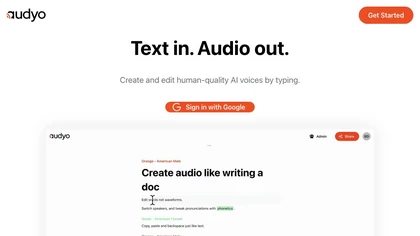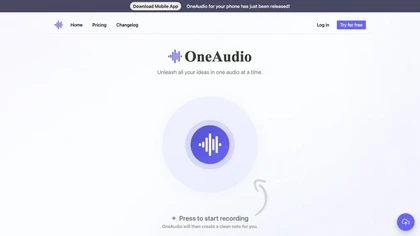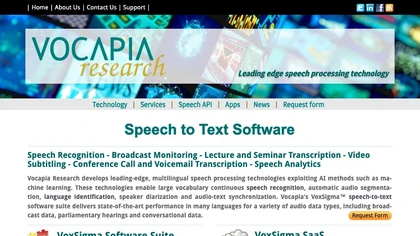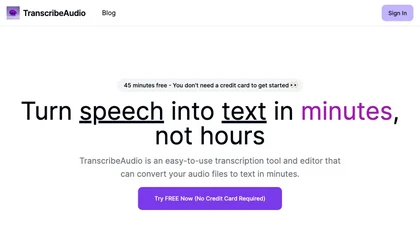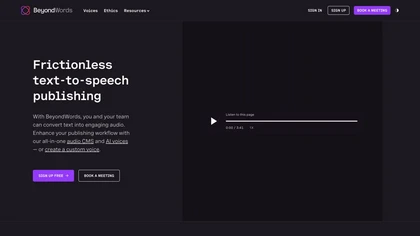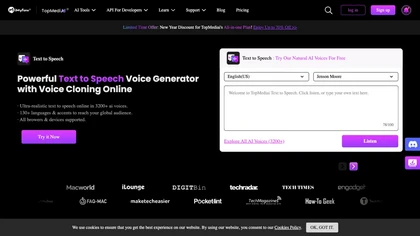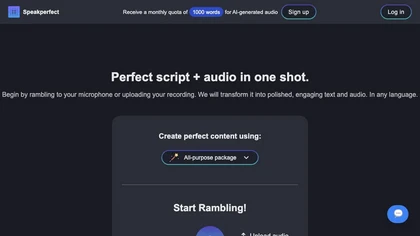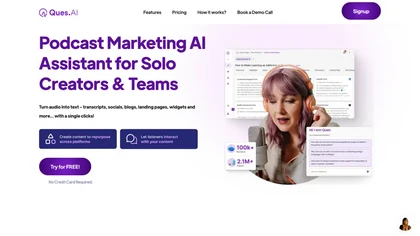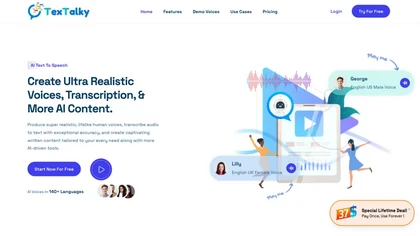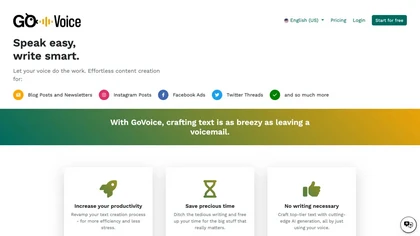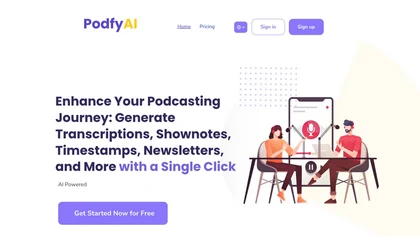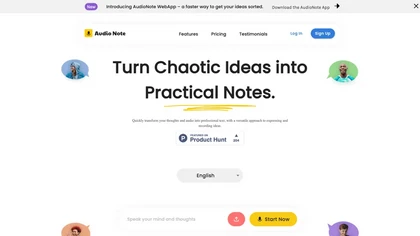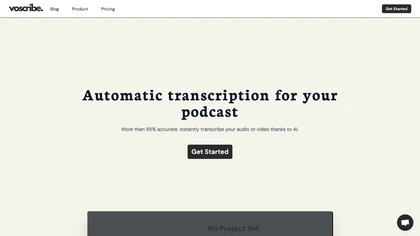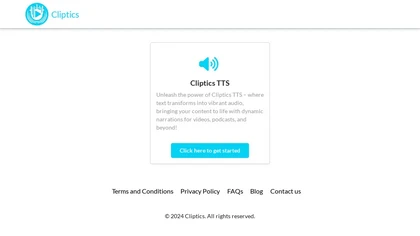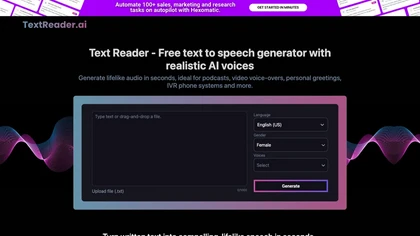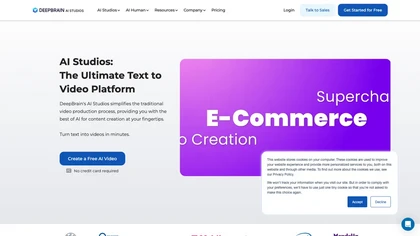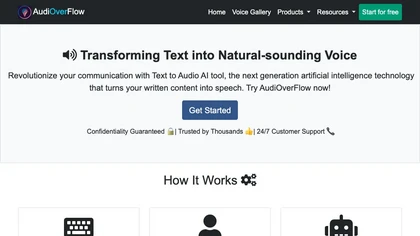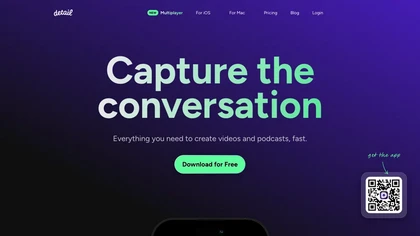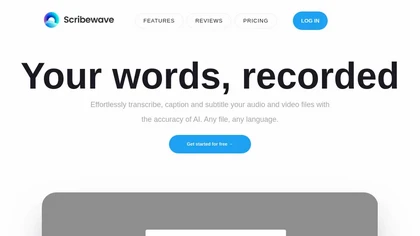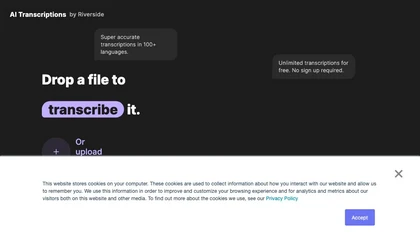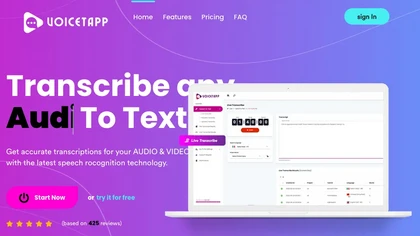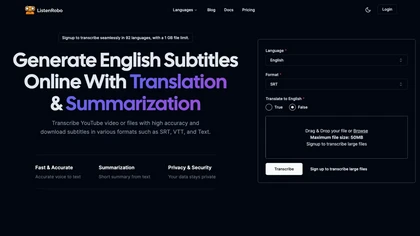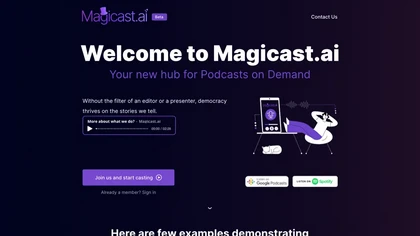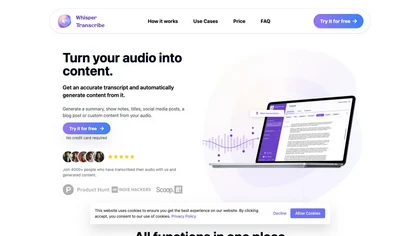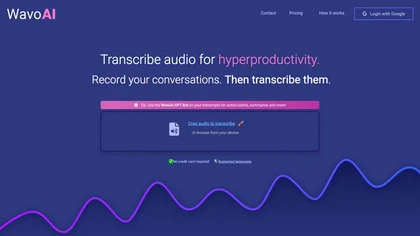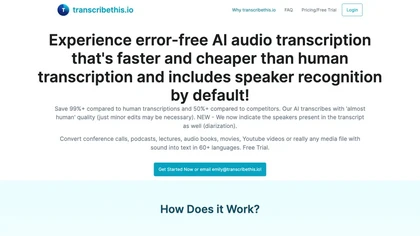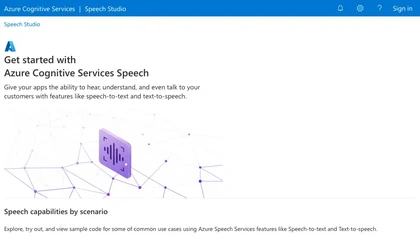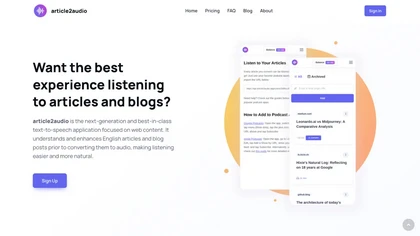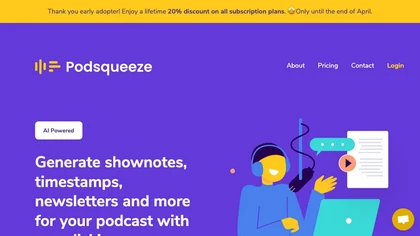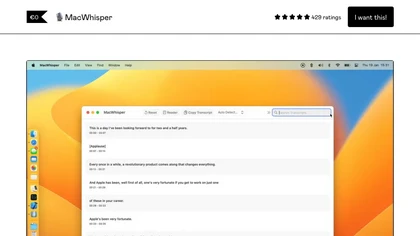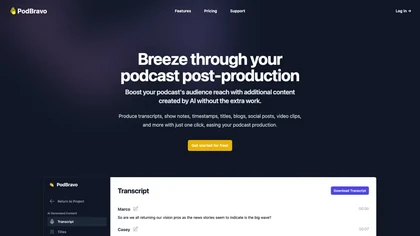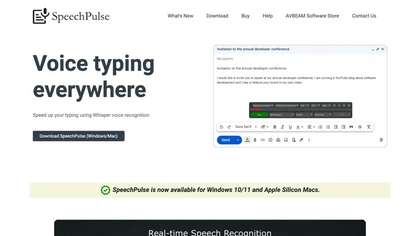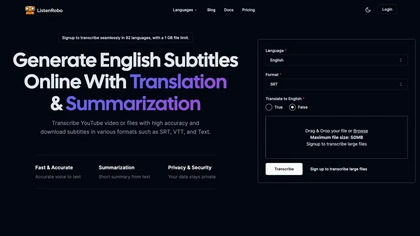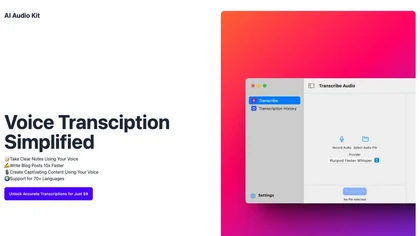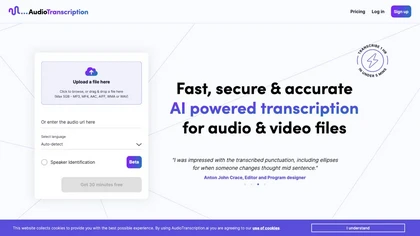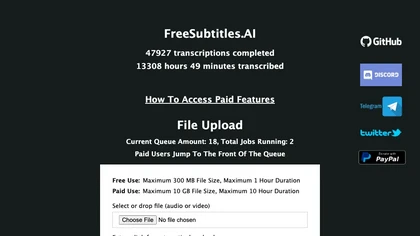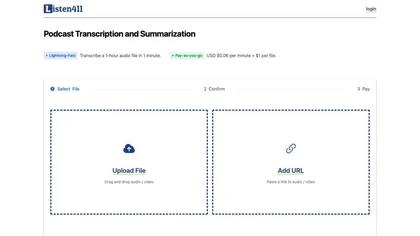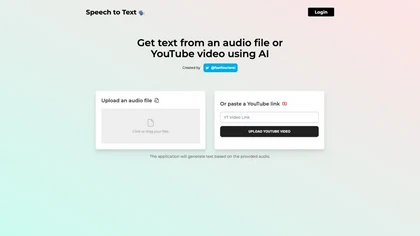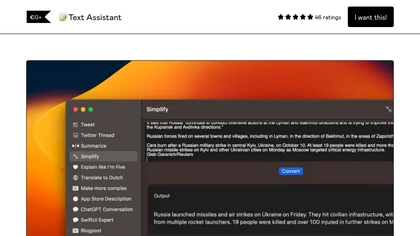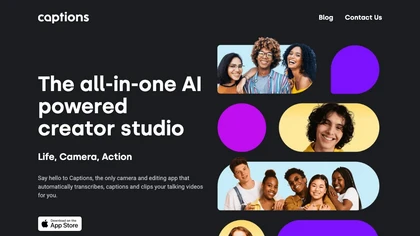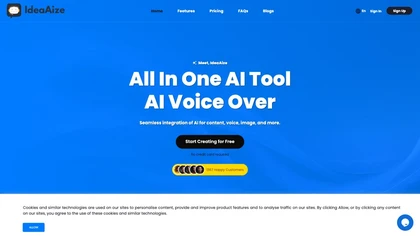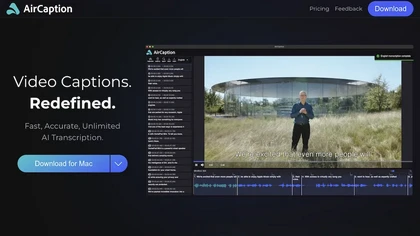AI use cases for Podcasting
Generative AI can be applied in various applications for podcasting. Here are some examples to explore below for inspiration with AI tools to get you started with using AI in podcasting.
🛠️ 70 AI tools for Podcasting
Explore a dynamic list of some of the most popular tools to get you started with various AI use cases and applications for Podcasting to streamline your workflows and productivity today.
AudioNotes features
- Voice notes to text
- Organization
- Transcription
- Summarization
- Content generation
VoicePen AI features
- Transcription
- Text summarization
- Video-to-text conversion
- Audio-to-text conversion
- Cross-promotion
SpeakUp AI features
- Textual content to podcast conversion
- Generative AI technology
- Instant voice cloning
- AI script editor
- Auto-mixer for music integration
Podshorty features
- Speech recognition technology
- Transcribing audio content to text
- Automation of transcription process
- Creating captions, show notes, and transcripts
- Enhancing accessibility of podcast content
Audio Writer iOS features
- Simplify turning stream of thoughts into written text
- Capture and transform spontaneous ideas into writing
- Refining transcripts and rewriting text in various styles
- Generating content in multiple languages
- Seamless integration with Typefully and Reflect
AIby.email features
- Text generation
- Grammar correction
- Summarization
- Custom story generation for children
- Study plan creation
🔥
Create your account, save tools & get personal recommendations
Receive a weekly digest of our handpicked top tools.
Unsubscribe anytime
Transcript.lol features
- Transcription
- Summarization
- Key point extraction
- Contextual question answering
- Speaker identification
Voice to Text features
- Transcribe voice notes
- Summarize content
- Refine content
- Create various projects
- Operates locally for privacy
Transcriptmate.com features
- Automatic transcription of audio files
- High accuracy and quick turnaround
- Support for multiple languages
- Various output formats without time stamps
- Additional options like diarization and transcription summaries
Contents features
- Ai writer
- Copywriting
- Audio-to-text transformation
- Translation services
- Industry trends
Relevant features
- Real-time content suggestions
- Related web content aggregation
- Continuous updates from various sources
- Specialized topic detection and filtering algorithms
- Real-time transcription and saving of transcripts
TurboScribe features
- Ultra-fast transcription services
- Support for over 98 languages
- GPU-powered transcription engine
- Speaker recognition
- Translation capabilities for over 134 languages
Taption
1Taption features
- Transcription
- Translation
- Speaker labeling
- Collaboration
- Export
One AI features
- Text processing
- Audio processing
- Video processing
- Language ai
- Generative ai
Localy features
- Ai chat
- Ai images
- Ai voiceover
- Ai code
- Ai speech-to-text
- Seo optimization
- Social media posts
- Humanize text
Wellsaidlabs features
- Text-to-speech
- Voice options
- Collaboration
- Ethics and security
- Businesses
Audyo features
- Text-to-speech
- Waveform editing
- Phonetic tweaking
- Speaker switching
- Audio download/upload/share
OneAudio features
- Audio Transcription and Summarization
- Automatic Language and Passage Detection
- Mobile App for audio recording
- Notes Bookmarking
Vocapia features
- Speech recognition
- Language identification
- Speaker diarization
- Speech-text alignment
- Large quantity audio and video transcription
- Multiple language support
- Web services via rest speech-to-text api
- Telephone speech analytics
- Video subtitle creation
TranscribeAudio features
- Multiple export formats
- Speaker Identification
- Speech-to-text conversion in minutes
- Secure storage of audio files
- Review and refine
- Insights
SpeechKit features
- Text-to-speech conversion for articles, newsletters, and blog posts
- Over 550 AI voices in 140+ languages
- Custom AI voice creation for specific target audiences
- Automatic SSML text preprocessor for accurate pronunciations
- Audio content distribution through API, RSS feed importer, and plugins
Tailor features
- Curate personalized news
- Add content from newspapers, youtube channels and podcasts
- Daily digest with important information
- Digest in both text and audio formats
TopMediai® features
- AI text-to-speech
- Voice cloning
- Photo editing features (e.g., watermark removal, background eraser)
- Video editing capabilities
- Efficiency and creativity focus
SpeakPerfect features
- Audio conversion
- Multi-language support
- All-purpose package
- Collaboration in chat community
- Rewards for referrals
Ques.ai features
- Convert audio into text transcripts
- Customize and embed podcast widgets
- Generate social media posts
- Optimize for YouTube descriptions
- Enhance podcast SEO
Textalky features
- 140 Languages & Accents Support
- 900 Lifelike Voices - Male & Female Choices
- Enhance Audio with SSML Tags
- Sound Studio Panel for Audio Editing
- Versatile Audio Export - MP3, Ogg, Wav, Webm
GoVoice features
- Voice-to-text conversion
- Text-to-speech capability
- Content generation for blog posts, social media updates, and newsletters
- Recycling existing content
- Enhanced productivity and efficiency
PodfyAI features
- Generating transcriptions
- Generating show notes
- Generating timestamps
- Generating newsletters
- Support for over 30 languages
Audio Notes AI features
- Audio to text transcription
- Support for over 30 languages
- AI technology for accurate transcriptions
- Effortless capturing of thoughts through audio recordings
- Professional text conversion
Voscribe features
- Automatic transcription
- Instant transcription of audio and video files
- Quick generation of transcripts
- Transcript editing capabilities
- Subtitle export in SRT format
Cliptics
4.9Cliptics features
- convert text to speech
- dynamic narrations
- professional-quality voiceovers
- multiple voices options
- multi-lingual support
Searchie features
- Streamline content creation
- Automate processes through integrated AI
- Transform knowledge into revenue
- Includes hubs for easy content search
- AI-powered tools for transcription, captioning, and chapter creation
Text Reader AI features
- Text-to-Speech Generation
- High-fidelity WaveNet voices
- Download audio in MP3 format
- Support for over 40 languages
- Versatile use for personal and commercial projects
AI Studios features
- Text-to-speech
- Create ai video
Audioverflow features
- Text to speech
- Voice selection
- Language choice
- Preview editing
- Download
Audiobox by Meta features
- Custom voice generation
- Sound effect creation
- Specialist models (Audiobox Speech, Audiobox Sound)
- Shared self-supervised model (Audiobox SSL)
- Interactive audio demos
11Cast features
- Text-to-podcast conversion
- 40+ ultra-realistic voices available
- Creation of podcast shows with cloned voices in 29 different languages
- Ability to bring any character to life in the podcast
- Automated process from content generation to final podcast production
Sonix features
- Transcription
- Translation
- Subtitling
- Searchable transcript editor
- Automated translation
Detail.co features
- Capturing conversations
- Auto editing
- Instant clips transcription
- AI-generated hashtags
- Linking two iPhone cameras wirelessly
Scribewave AI features
- Transcription
- Translation
- Export in various formats
- Audio-to-video conversion
AI Transcriptions by Riverside features
- Language transcription
- Support for mp3, wav, mp4, and mov file types
- Unlimited transcripts available without sign-up
- Audio and video editing capabilities
- Speaker detection and identification
Make Content features
- AI writing tools for various content types
- Selection of writing tools based on task requirements
- Generation of unique, human-like content in seconds
- Wide array of AI tools including chatbots, image creation, voiceovers, speech-to-text, and code generation
- 70+ templates for various writing tasks like blogging, resumes, emails, and social media content
Voicetapp features
- Text conversion
- Speaker identification
- Live transcription
- Multilingual support
- Deep learning
CreateEasily features
- Transcribe audio and video content in 92 languages
- Support for files up to 1 GB in size
- Generate English subtitles with high accuracy
- Voice-to-text summarization for creating concise summaries
- Translate and transcribe YouTube video files
Magicast.ai features
- Convert written content to audio
- Summarize complex topics
- Provide news digests
- Offer podcasts on various topics
- Deliver unique podcast experience
storyflash Audio Suite features
- Convert web articles into animated stories and pins
- Publish directly on platforms like Pinterest, Facebook, and Instagram
- Automate crafting and distributing content
- Create synthetic podcasts from article reads using voice AI technology
- Content scheduling across multiple channels
WhisperTranscribe features
- Effortlessly transcribe audio content with 95% accuracy in 54 languages
- Automatically generate accurate transcripts
- Edit transcribed content with precision
- Create custom content for various platforms
- Seamless transcribing across devices
WavoAI
5WavoAI features
- Accurate audio transcription
- Interactive summarization capabilities
- Multi-language support
- Speaker identification and annotations
- Seamless integration with existing tools
Transcribethis features
- Error-free transcriptions
- Speaker recognition
- High-quality AI transcriptions
- Support for over 60 languages
- Privacy-focused data processing
Speech Studio features
- Speech-to-text
- Text-to-speech
- Scenario exploration
- Custom speech models
- Voice-assistant capabilities
article2audio features
- Enhanced understanding of English articles and blog posts
- Synthesizes complex text including programming code and tables
- Provides key takeaways without overwhelming details
- Offers meaningful voice-overs for enhanced listening experiences
- Supports English with plans to expand to other languages
Podsqueeze
4.8Podsqueeze features
- Podcast content generation
- Show notes creation
- Timestamps extraction
- Newsletter generation
- Seo-friendly blog post transformation
Eleven Labs features
- Generate spoken audio
- Convert text to speech
- Design compelling audio
- Clone an existing voice
- Create a new synthetic voice
Insight Video IA features
- video transcription
- content editing
- content generation
- mind maps creation
- automatic video captions
MacWhisper features
- Transcribe audio files
- Supports over 100 languages
- Export subtitles
- Sync playback
- Highlight keywords
PodBravo features
- Repurposing content into various formats
- Creating additional content through AI
- Providing full transcripts and captions
- Improving SEO with searchable text
- Sharing content across platforms
SpeechPulse features
- Whisper speech recognition technology
- Real-time speech-to-text conversion
- Multiple language support
- Translation services
- Transcription and translation of audio files
ListenRobo features
- Seamless transcription and translation services for audio and video content
- Support for 92 languages
- 1 GB file limit for transcription
- High accuracy in transcribing YouTube videos
- Privacy and security with encrypted data
AI Audio Kit features
- Voice transcription
- Support for over 70 languages
- Effortless note-taking
- Captivating content creation
- Highly accurate transcriptions
Chapple.ai features
- Ai writing assistant
- Customizable templates
- Visual creator
- Code automation
- Collaboration tools
AudioTranscription features
- Transcribing audio and video files
- User-friendly interface
- Support for file uploads up to 5GB
- Transcription from various formats like MP3, MP4, AAC, AIFF, WMA, WAV
- Speaker identification in beta mode
Free Subtitles AI features
- Transcription
- Translation
listen411.com features
- Lightning-fast transcription (1-hour audio in 1 minute)
- Support for various audio and video formats (AAC, MP3, MP4)
- Output in multiple formats (plain text, SRT, VTT, JSON)
- Automatic language detection for multiple languages
- Affordable pay-as-you-go pricing model ($0.06 per minute)
SpeechtoTextAI features
- Speech to text conversion
- User-friendly interface
- Upload audio files
- Paste YouTube video links
- Fast processing capabilities
Text Assistant features
- Text generation
- Prompt creation
- Symbol prompt addition
- Output copying
- Time-saving
Captions features
- Transcription
- Captioning
- Customization
- Editor
- Language support
IdeaAize features
- Chatbot creation
- AI voiceover generation
- Speech-to-text transcription
- Code assistance
- Unique and human-like content output
AirCaption features
- Runs on Mac and Windows
- Runs locally for maximum privacy
- Editing and timing adjustment
- Importing various caption files formats
- Generate subtitles in up to 60 languages
